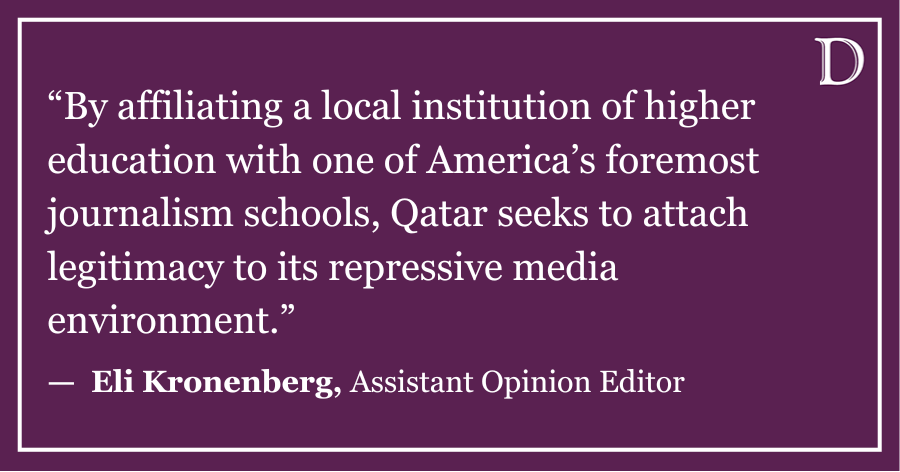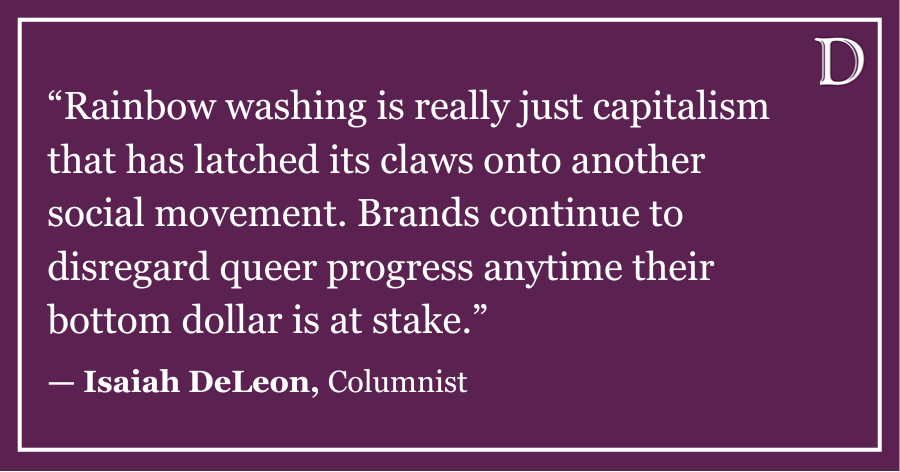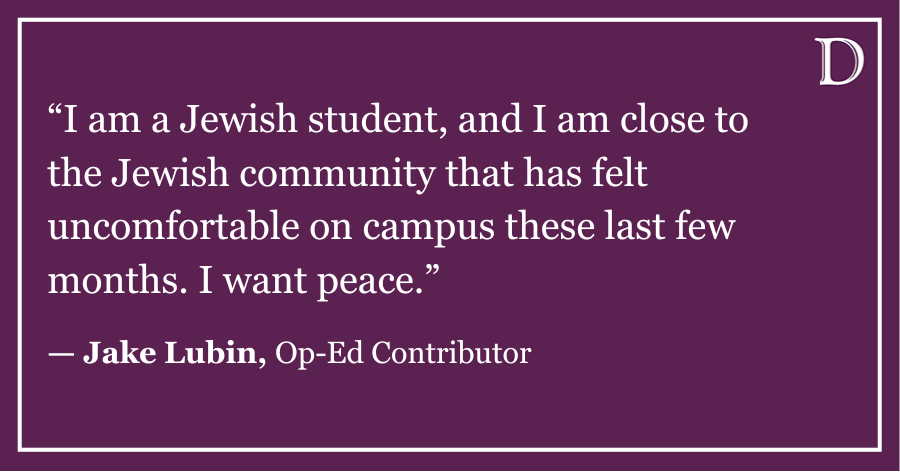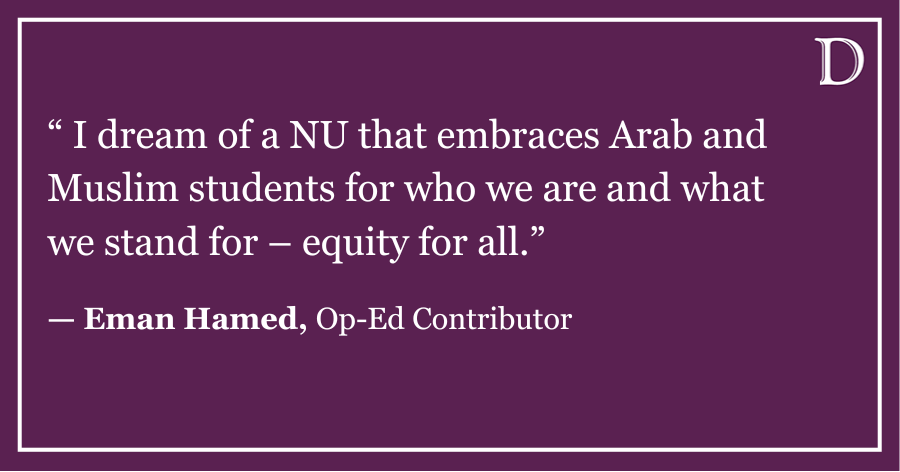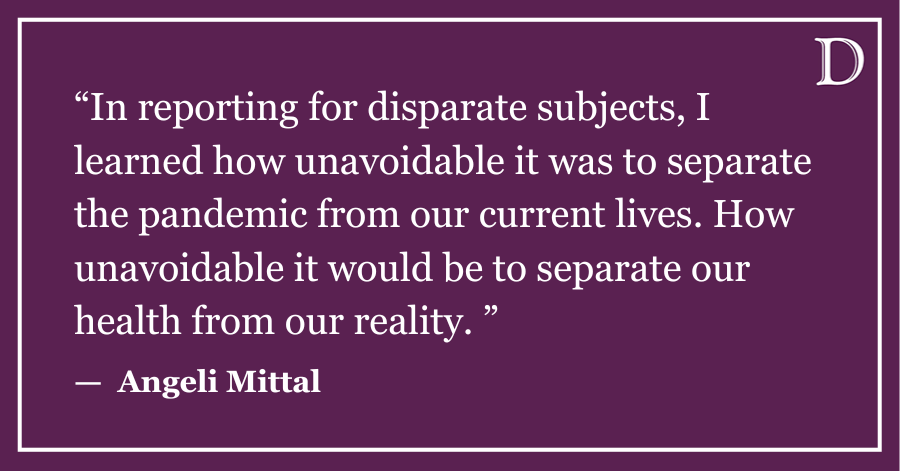Today is the last day of October. For the past few weeks, our thoughts have been filled with midterms and Halloween plans, and there’s not much room for anything else in our crazy schedules. But this marks the end of a month recognizing an oft-overlooked cause.
October is Domestic Violence Awareness Month. You may have seen The Rock painted with mini purple ribbons or the chalked “DVAM” on the ground around campus, bombarding you with information on events. But what does it all mean? Why is it so important that we raise domestic violence awareness at Northwestern?
As a cause, domestic violence awareness, or DVA, is under-recognized. I could give you statistics, such as domestic violence affects one out of every four women, or emphasize how important DVA is to relationships in general. But there is another reason this is relevant to students on a college campus.
Domestic violence encompasses more issues than it appears to cover. DVA education includes information about the characteristics of abuse, sexual assault, rape and how to cultivate healthy relationships. The first two are certainly relevant to us in college, as I’ve written about before. Healthy relationships, however, affect every single one of us.
Relationships define who we are. If we’re doing life right, we are constantly learning from the people that we interact with and sometimes changing our actions to reflect what we’ve learned. As Eric Butterworth famously recommended, “Don’t go through life; grow through life.” As a result, it’s hard to know if our own relationships are actually detrimental to our well-being. We’re often too close to the situation to recognize when something is wrong.
I am not just talking about romantic relationships. I’m talking about relationships with your friends, your parents, your partners for class projects or the people you work with in clubs. It’s important to cultivate healthy relationships throughout your life.
This is why it is so important that we all recognize the characteristics of abuse. We have the resources at our disposal; CARE, the Center for Awareness, Response and Education, and other resources on campus teach us about concepts such as The Power and Control Wheel, which includes emotional, academic, physical, sexual, isolating and other types of abuse experienced by college students. The Step Up! bystander intervention program at NU teaches us specifically how to notice and speak up when a relationship doesn’t seem healthy.
I am not here to lecture you on the protocol of what to do if you think someone is experiencing domestic violence. It’s tricky to give a universal recommendation for what exactly one should do in a particular situation. Centers on campus like CARE can definitely help you out, and there are plenty of sites and experts that give general tips on domestic violence situations.
I’m here to explain why DVA is relevant to us as college kids, and why it is important to spread awareness and recognize the signs in relationships that you may develop in the future.
Many people have their first serious relationship in college, and often, you meet your significant other in your dorms. It can be dangerous to start a relationship with someone that you live with. There’s a reason people wait to move in with each other when dating after college. Space is important in healthy relationships, and it’s hard to get that if you’re living in close proximity right away with a significant other.
This is why we must recognize the signs and be willing and brave enough to do something about them.
Domestic violence is violence between people who live together. In college, we tend to think of people we live with as our friends. Abuse is a strong word that we don’t think to use with our peers, though it is not as elusive of a concept as it may seem. For many of us, this is the first time we are living away from our home and our parents. We are figuring out what our relationships with others are without the influence of the people who raised us, and it’s important that we cultivate healthy ones throughout our lives.
The next time you see a purple ribbon, think about your relationships and make sure they are wholesome. If you notice concerning signs in one of your relationships, or that of a friend or acquaintance, speak up and do something about it. That’s what DVA is all about.
Meera Patel is a McCormick junior. She can be reached at [email protected]. If you want to respond publicly to this column, send a Letter to the Editor to [email protected].












